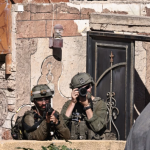Millions of African children are missing out on education as schools struggle with the effects of armed conflict and insecurity. According to the Norwegian Refugee Council (NRC), by June 2024, over 14,300 schools across 24 African countries had been closed. The countries most affected include Burkina Faso, the Democratic Republic of Congo (DRC), Cameroon, Chad, Nigeria, and Niger.
Christelle Hure from the NRC’s Western Central Africa office highlighted the severe impact, stating, “The schools that have closed due to violence affect an estimated 2.8 million children.” She added, “These children are not only deprived of education but are also more vulnerable to various protection risks.”
Aid agencies warn that the disruption in education makes children easy targets for recruitment by armed groups, further jeopardizing their education and decreasing their chances of ever returning to school. Additionally, the lack of schooling increases their vulnerability to violence and exploitation, contributing to ongoing cycles of poverty and instability.
The latest figure marks an increase of 1,100 school closures from the previous year, when 13,200 schools were shut down due to conflict and insecurity. In some countries, the situation is particularly dire. UNICEF reports that in Burkina Faso, one in four schools is closed. In the DRC, at least 1,450 schools had closed by January, affecting 500,000 students.
Risasi Mwinyi Patience, a 47-year-old Congolese refugee living in Uganda, shared his experience. After his wife was killed in fighting in the DRC’s Ituri province, he fled to Uganda in April for safety with his two children. “The Congolese school where my children, in fourth and sixth grades, were enrolled has closed,” he said. He has since enrolled them in a school in Uganda.
Hure noted that the reasons for school closures vary across countries but can be grouped into three main categories. “The first reason is really for military purposes. It’s about regaining or gaining control over territory,” she explained.
“The second reason is that schools are seen by non-state groups as symbols of government authority,” Hure continued, “and the last reason is that in some cases, schools are viewed as promoting ideologies these groups oppose, such as education for girls or teaching in French.”
Risasi Mwinyi Patience expressed concern for his and his children’s future, as they are forced to start their education anew due to the language barrier. “Schools in the DR Congo are taught in French, but now their school in Uganda teaches in English,” he said. His children have been required to repeat classes, which has added to the challenges they already face in the refugee camp.
While the overall situation remains bleak, there have been some improvements. In the Central African Republic and Mali, schools have reopened as security conditions have improved. Additionally, in Burkina Faso, around 1,300 schools reopened since October 2023 after government forces regained control of areas previously held by terror groups.
The NRC is urging the international community, governments, and warring factions to prioritize the protection of education by stopping attacks on schools and ensuring the safety of both students and teachers.



